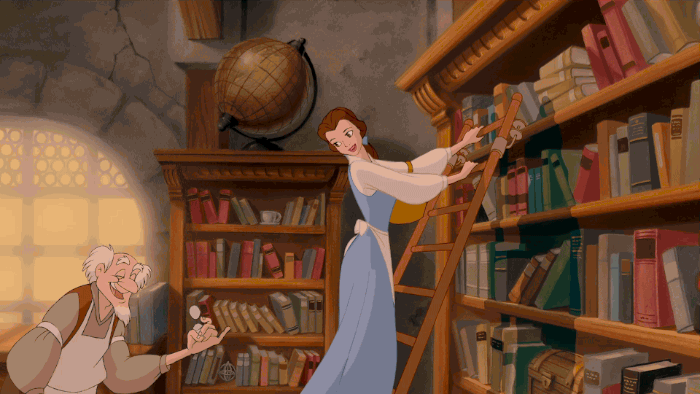I was tagged by
Books And Chocoholic to do this tag last week, which she created. Her original video can be
found here. It took me longer than I expected to be able to sit down and The purpose of this tag is to just info dump all of your reading preferences. Anyway, now let's get into the tag.
1) How many books on average do you read per month?
I normally read around 10 books for month. April is turning out to be a very good month, as I've already read 13 books so far. In all fairness, some of those books are short or graphic novels.
2) How many books are on your TBR?
Around 40 books are on my TBR, but I don't know the exact number because I add books and remove books almost daily. I also don't like thinking about how long that list is getting.
3) How are your books organized on your shelves?
I don't. I keep series together and my comic books/graphic novels are together, but beyond that, I don't have a rhyme or reason in how books are placed on the shelves. I know some people organize by author or by genre, but I'm not that organized, so books end up wherever there's space on the shelf.
4) Which genres do you read the most from?
I read a lot of fantasy, especially epic fantasy. I also read a great deal of science fiction. Surprisingly, there are also a lot of general/literary fiction books I've read so far in 2020, or at least more than I thought I'd read. I'm hoping to read a little bit more non-fiction this year, as well as try to get back into thrillers
5) Which genres do you own the most of?
Fantasy and science fiction, definitely.
6) What is your preferred form of reading (physical books, e-books, etc)?
I read mostly physical books, but I've started reading more e-books recently. Audiobooks are just not really my thing, unfortunately.
7) Who is your most owned author?
Tolkien, hands down. There are so many
Lord of the Rings-related books in my house, it's not even funny. The runner-up would be Kiersten White.
8) Describe your favorite writing style.
I like writing that is appropriately descriptive, which may sound weird at first glance, but let me explain. If the author is describing another planet or a different dimension or magical realm, they should be using more detail than if they're describing something more mundane, like anything in "our" world. I prefer 3rd person, but I don't have a problem with writing in 1st person. I'm not a big fan of flowery dialogue or when an author uses overly complicated words to "enhance" the writing. I don't know if this fits under here, but pacing is a big thing for me as well. I dislike it when a book spends 300 pages building to a confrontation that lasts half a page.
9) Which literary devices do you like/dislike?
I love well-executed instances of foreshadowing. My favorite books tend to be the ones where I'm surprised by a turn of events, but it doesn't seem to be coming out of nowhere. I'm a big fan of symbolism as well, especially in fantasy. I'm not a huge fan of split timelines. I also have issues with stream of consciousness writing.
10) Which character archetypes do you enjoy?
This probably isn't groundbreaking or unique, but I loved flawed characters. Snarky characters, anti-heroes, characters that are complicated. I'm also a huge fan of pure evil villains. Someone who just wants to take over the world, or whatever. I don't need a tragic backstory, and depending on the genre, I don't want a backstory, or a villain who is evil only because they oppose the heroes or may have a point.
11) Which are your favorite book settings?
I like books that take place in other worlds or on other planets, pretty much as far from reality as possible. Historical settings for fantasy are also a big hit with me. I don't have anything against modern settings or urban fantasy, but they're just not my favorite.
12) Which are your favorite romantic and plot tropes?
I don't really have a favorite romantic trope, just a few that I heavily dislike, such as instalove, love triangles and couples that keep getting together and breaking up. If I had to pick one, I'd say my favorites tropes are strangers-to-lovers or second-loves. It honestly takes a lot for me to care about romance in the books that I read. As for plot tropes, I love the "found family" trope. I'm a sucker for strong friendships/the power of friendship. Also, I don't know the agreed-upon term for this trope, but I love it when there is a prophecy and it's fulfilled in an unexpected way, usually involving either vague wording or "the chosen one" not actually being the chosen one.
And that's the tag! Now, it's time for me to do some tagging of my own. I tag:
Leah's Books & Cooks
Caffeinated Fae
Behind the Pages
And anyone else who wants to give this tag a try!




